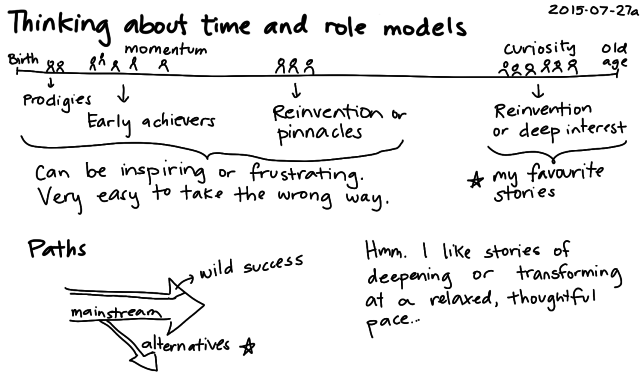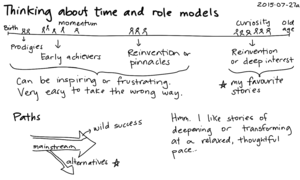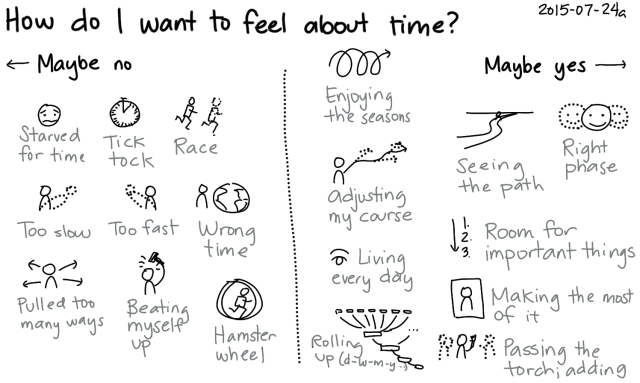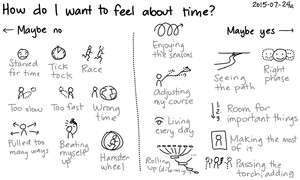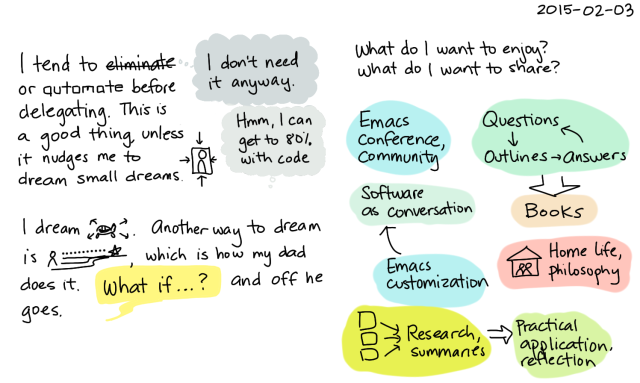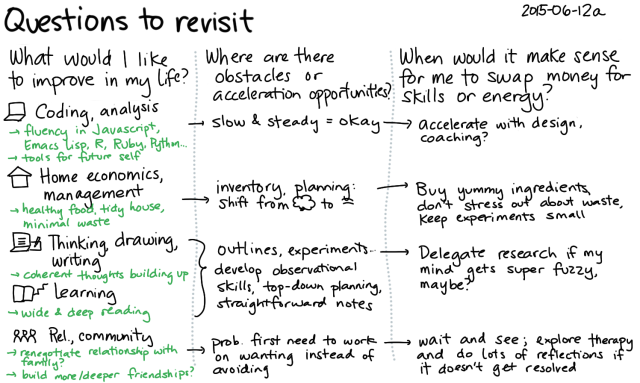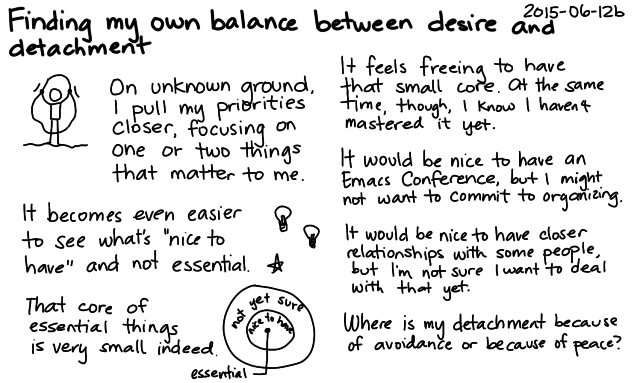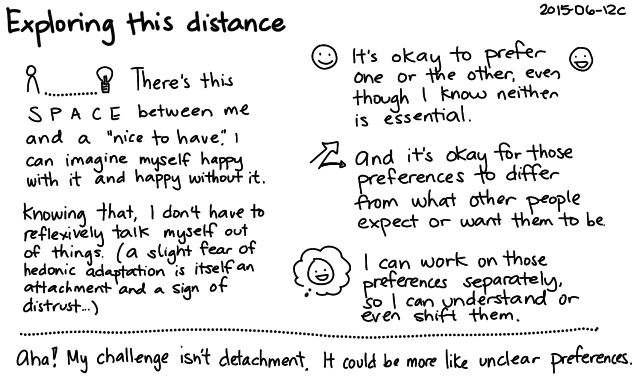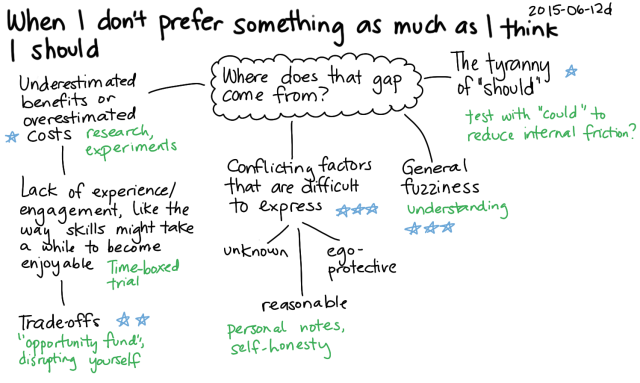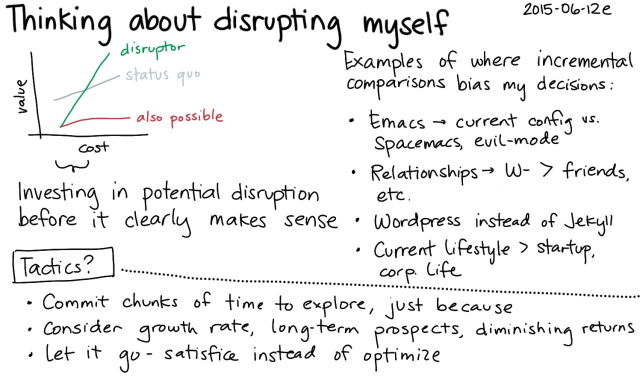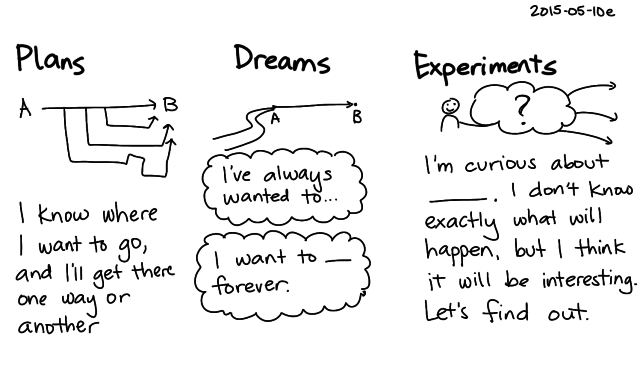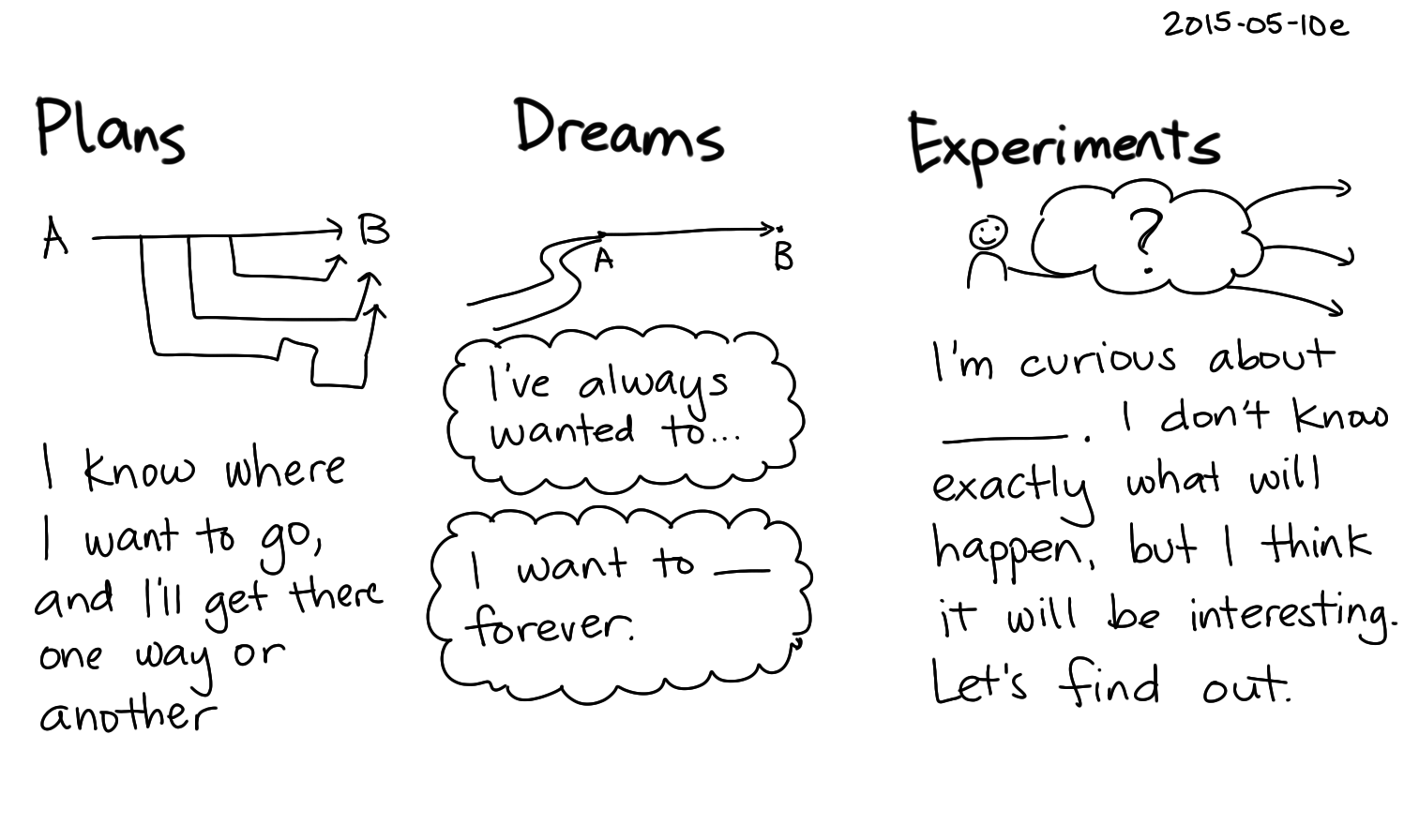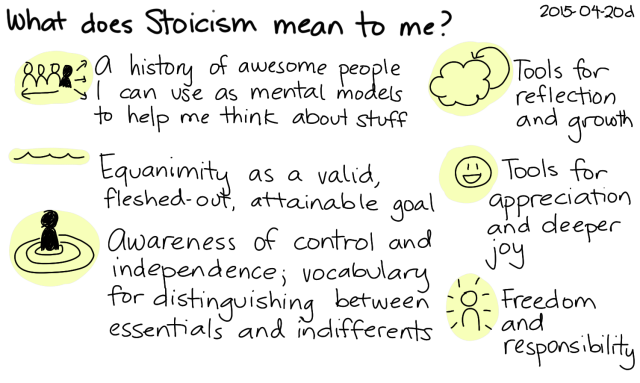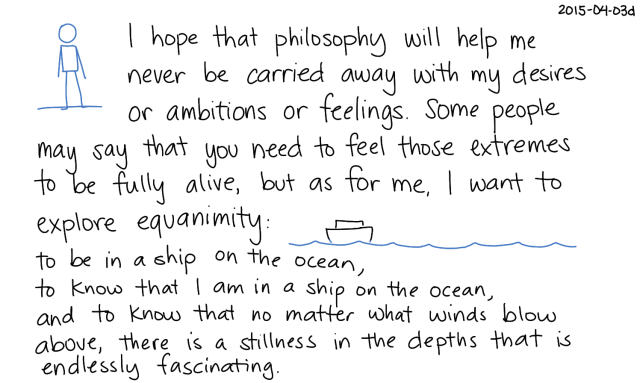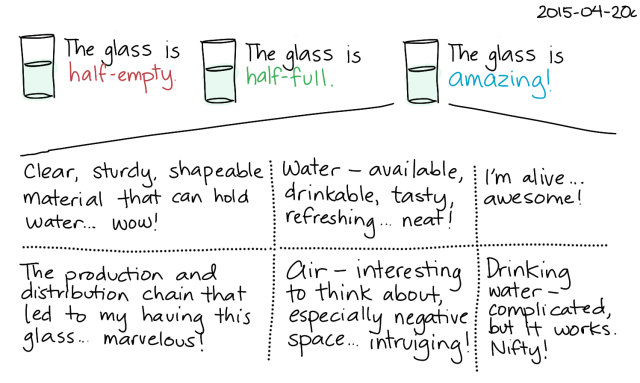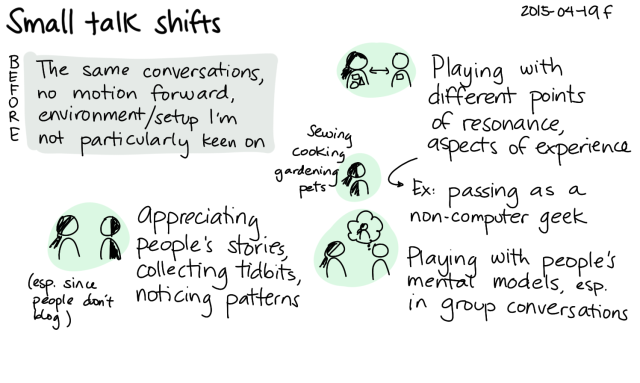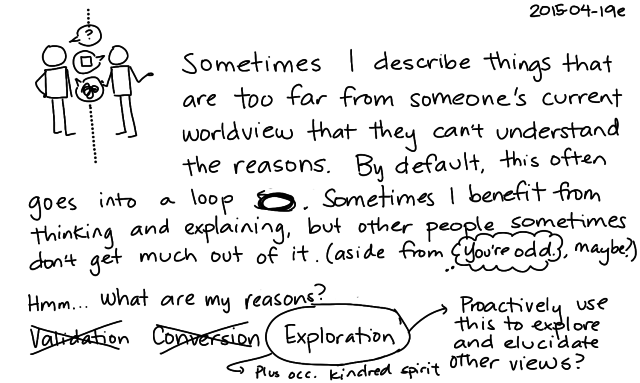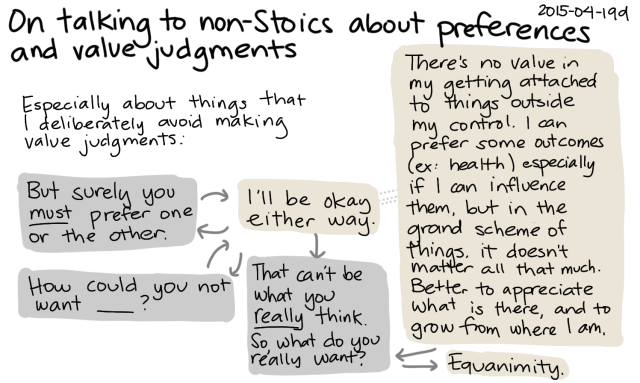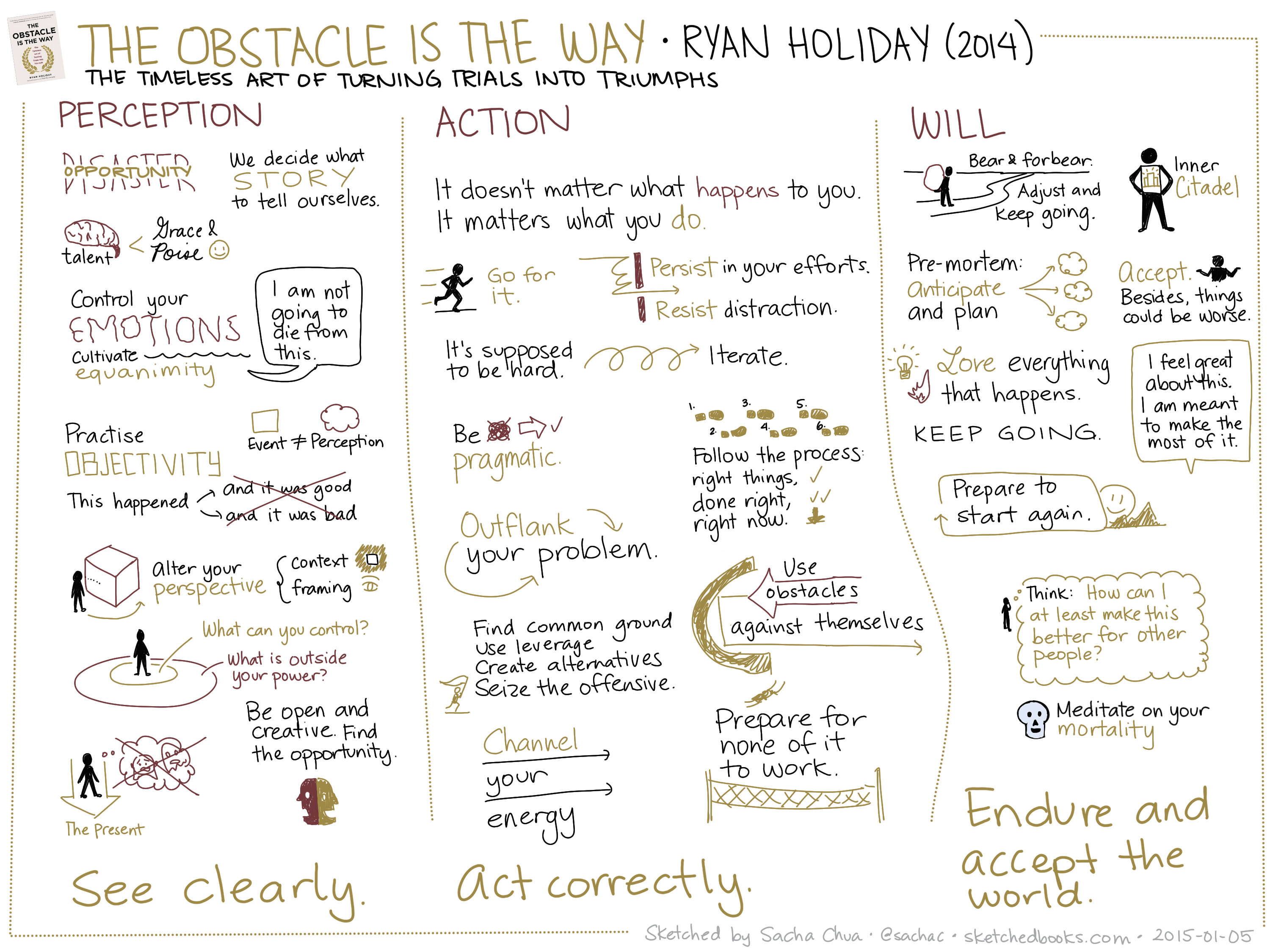Thoughts about time
Posted: - Modified: | philosophy, reflection, timeA friend sent me a link to "Your Life in Weeks", which got me thinking about my changing attitude towards time and ambition. Here were the key points I picked up from the blog post:
- It's good to be aware of the passage of time and how limited it is.
- Measuring your life against famous people's accomplishments or lifetimes can be eye-opening.
- You should ideally spend your time doing things that improve your future or the lives of others and that you enjoy. Utility without pleasure or pleasure without utility is okay but not great. Don't waste your time doing things that are neither useful nor pleasant.
- Every week can be a fresh start.
I agree with some aspects of these points. I can remember being the sort of person who agreed more, and that's interesting for me – tracking the changes in my attitude towards time.
I can remember a time when I kept an eye out for the milestones by which other people had achieved a lot: the youngest people who did X/Y/Z, the lists of thirty under thirty, the stats in math and physics of early achievement and momentum.
I moved on from that in my late teens or so, when I realized people used stories like that to beat themselves up, give up, or push themselves to an unhealthy pace. I wanted to find something to tell people who told me, "Wow, you're so young and you're already good at computers! I could never do something like that." For myself, I saw the kinds of lives people sketched out for people who had "high potential," and I wasn't sure if I really wanted them. Instead of those stories of young CEOs and world-changers, I resonated more with attention to those who continued achieving later in life, or even started late, like Grandma Moses taking up painting at 78. I liked the stories those lives could help me tell to people who felt they missed the boat. I liked the stories of deep interest, like Isaac Asimov's decades of writing, and how those stories illuminated the possibilities. I liked examples of older people continuing to engage, like Benjamin Zander.
The books and magazines and newspapers I read were filled with stories of mainstream success, but I found myself more curious about people who had thoughtfully explored alternatives. I liked discussions of frugality and deliberate consumption more than luxury and excess. I liked communities around lifelong learning, experimentation, and early retirement.
One of the things I picked up from looking at other people's lives was the possibility that you could feel time as abundant instead of scarce – not so plentiful as to be wasted, but enough for the important things in life. Life didn't have to be a rat race or a hurried rush from one thing or another. I didn't have to do everything. I didn't have to have it all. I could do what I can and enjoy where I was.
Still, I was curious about acceleration. I periodically experimented with the productivity techniques that other people liked: making lists of goals, plotting out timelines, looking for ways to accelerate. I found that committing to an artificial deadline or target date to a goal didn't really resonate with me. I decided not to be my own taskmaster, trusting instead in my shifting evaluations and priorities. I'm nowhere near where my far-past self might have guessed I'd be, but I like where I am. I'm somewhere my far-past self couldn't even have imagined.
I hadn't come across Seneca's On the Shortness of Life until a few years ago, but when I did, I found it in things that I had come to believe about my own life. "It is not that we have a short space of time, but that we waste much of it. Life is long enough, and it has been given in sufficiently generous measure to allow the accomplishment of the very greatest things if the whole of it is well invested."
What does it mean to invest it well, though? I remember occasionally measuring my life against the estimate of my remaining days, tallying up what I had done and what I wanted to do. I felt the passing of time in the days and the months. I remember observing the differences in familiar people and in the world around me: my parents' graying hair, my friends' lifestages, the shifts in technologies. Back to the tick-tock. I think one of the reasons I've found it so easy to keep a weekly/monthly/yearly review (and now a daily journal) is that I don't want to wake up one day and wonder where all those years went, as people often do.
Something has shifted in my perspective, though. I'm not sure what caused it. Maybe philosophy has helped me let go of the worry about making sure I live a life of great significance. I don't need to be in history books. I can focus on living life well, and other people can decide how much they want to take from it. Maybe this equanimity had something to do with the day-to-day focus of my current phase. These days, I'm mostly focused on being when I am – not trying to fast-forward or rewind, but rather seeing and making the most of now.
I still want to make something of my life. I want to leave behind notes, tools, and ideas that will make it easier for other people to go a little farther or a little faster. I've felt that way for as long as I can remember. It feels a little different now, though. Instead of worrying that I'll fail or that I'll choose the wrong path, I know I can keep building and exploring, and that the benefits will grow and grow.

